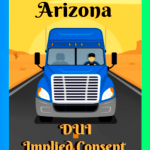In a recent case coming out of the Supreme Court of Arizona, the defendant asked the court to reconsider his conviction for resisting arrest. According to the defendant, the trial court improperly instructed the jury regarding the law that applied to his case, and the verdict should be reversed because of the trial court’s error. Ultimately finding no error, the higher court affirmed the decision, and the defendant’s conviction remained in place.
Facts of the Case
According to the opinion, state troopers were on the lookout for a stolen vehicle one evening when they noticed the defendant loading items into the car they were looking for. The officers approached the defendant to arrest him, and he started running. A physical altercation ensued, but the officers were eventually able to arrest the defendant and take him to the station.
The defendant was charged with resisting arrest. He pled not guilty, his case went to trial, and the jury unanimously found him guilty.
 Arizona Criminal Defense Attorney Blog
Arizona Criminal Defense Attorney Blog


